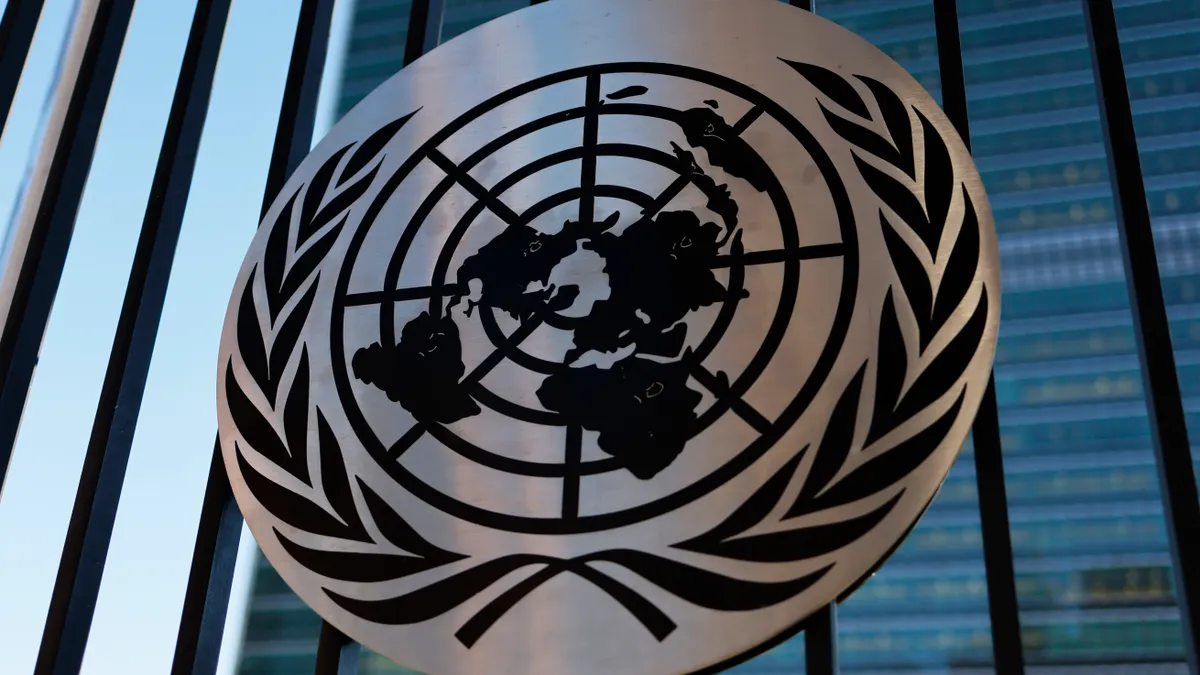Dive Brief:
- The world is not on track to meet the Paris Agreement’s goal of keeping temperature increases to 1.5 degrees Celsius due to inadequate climate action from committed nations, according to a Thursday report from the United Nations.
- The report revealed global greenhouse gas emissions increased to a record figure of over 57 gigatons in 2023, up 1.3% from the year before. This spike will require larger emissions cuts: The UN said about 7.5% of emissions must be shaved off each year until 2035 to make the 2015 climate accord’s target possible.
- The UN said current climate policies and pledges made by countries are “nowhere near” the level of ambition needed to slow down global warming. The global body warned that if this trajectory continues, the goal of “1.5°C will be dead within a few years.”
Dive Insight:
The report, authored by the UN Environment Programme, said countries must collectively commit to reducing 42% of their annual emissions by 2030 and 57% of emissions by 2035 in their enhanced reduction plans, or Nationally Determined Contributions. Nearly 200 countries are due to present their NDCs to the UN next year for the period of 2025-2035, nearly a decade after the Paris Agreement was first introduced.
“The next NDCs must deliver a quantum leap in ambition in tandem with accelerated mitigation action in this decade,” the Emissions Gap Report stated.
Failure to update these NDCs in a way that accelerates climate action puts the world on course for temperature increases of 2.6 to 3.1 degrees Celsius for the remainder of this century. Such increases would have a colossal impact on society, the planet and the economy, per the UNEP.
Though over 200 countries struck a landmark climate agreement at COP28 last year that called for a transition away from fossil fuels and the acceleration of renewable energy production, the UNEP report suggests little progress has been made to this end. Instead, global reliance on fossil fuels has only increased year-over-year, despite efforts to adopt clean energy alternatives.
The Oct. 24 report found that G20 members — which include some of the world’s largest economies, representing around 85% of the global GDP — minus the African Union, accounted for 77% of global emissions in 2023. China was the world’s top emitter (30%), followed by the United States (11%).
UNEP Executive Director Inger Andersen said members of this international forum — especially those with a bigger carbon footprint — would need to do the “heavy lifting” when it comes to spurring climate action if the world is to get on track for a clean energy transition and, eventually, net-zero economies.
Andersen said getting back on a pathway to limiting global temperature increases to 1.5 degrees Celsius is “technically possible.” However, it would require countries to scale the production and deployment of renewable power, such as solar and wind energy; take action on forests; and increase energy efficiency measures, such as adopting electrification and swapping fuels being used in the transport, buildings and industry sectors.
The UN-backed reports come just a few weeks before the COP29 climate change summit, slated for Nov. 11-22 in Baku, Azerbaijan.










